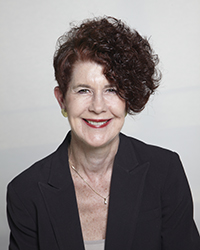Seeking Patient Care?
The University of Miami Miller School of Medicine Department of Psychiatry and Behavioral Sciences offers residents, postdoctoral students, and fellows a dynamic, transformative training experience that provides a broad demographic mix of patients from South Florida’s multicultural community.
Our talented, multidisciplinary team is passionate about serving our patients and community and training the next generation of psychiatric professionals.
Trainees gain experience in a variety of clinical environments at the University of Miami Health System, the Miami VA, Jackson Memorial Hospital, Sylvester Comprehensive Cancer Center, and Jackson Behavioral Health Hospital, which has one of the busiest psychiatric emergency departments in the country. Our hospitals, university counseling center, and clinics allow trainees to obtain broad, in-depth training and exposure to a full range of mental health conditions in people of all ages – from anxiety and depression to psychosis, substance abuse, and complex medical comorbidities.
We’re a team-based specialty and department that includes psychiatrists, psychologists, social workers, and nurses. We work collaboratively with departments across the medical school – from pediatrics and OB-GYN to neurology, neurological surgery, and more. We collaborate with other departments to investigate the psychological aspects of diseases, such as itching in skin conditions (dermatology) or anxiety that often accompanies tinnitus (otolaryngology).
Our new Research Track provides didactics with broad exposure to our research faculty for six months, followed by opportunities to work with a mentor on a research elective in the third or fourth year of training. We’ve expanded our training program to include fast-track options for medical students interested in psychiatry and residents who want to pursue a fellowship, offering early exposure to special interests. We believe in nurturing trainees’ interests and offering opportunities to find areas they’re passionate about.
Looking toward the future, we plan to increase our reach regionally and nationally to become a destination health care center for psychiatric care. Our multicultural faculty cares for a diverse patient population and has advanced expertise working with underrepresented minorities and delivering culturally sensitive care. This positions us well to broaden our reach to the Caribbean, Latin America, South America, and beyond.
We also plan to increase National Institutes of Health (NIH) funding and expand the depth and scope of our research. We’re already well-funded by the NIH to conduct leading-edge research. We have several premier programs, including exploring neurocognition in Alzheimer’s disease at the 1Florida Alzheimer’s Disease Research Center (ADRC) – one of just 31 NIH-designated Centers of Excellence. At the Center for Therapeutic Innovation, we’re working with Sylvester Comprehensive Cancer Center on translational research and working with the ADRC and other institutes within the university to develop novel molecules and treatments for many diseases.
To become a destination health care center and increase our NIH-funded research, we plan to implement diagnosis- and subspecialty-based programs that offer clinical treatment and research. For example, we plan to develop a mood disorders program that focuses on people of all ages, from children and adolescents to geriatric patients. We’d have the specialists and programs to provide services for every age, stage, and need. We’re working together to bring this vision to life through our partnership with Jackson Memorial Hospital and Jackson Behavioral Health Hospital.
I am very enthusiastic about the future of mental and behavioral health as we head toward precision medicine (treatments tailored to the individual). We have an opportunity to capitalize on technological innovations and machine learning – computer programs that learn from data and improve their accuracy through experience. We’ll be able to look at patient data and apply it to individual patients, particularly when we merge technology with improved genomics and pharmacogenomic studies (a new field that combines the science of drugs and the human genome). Eventually, we’ll be able to recommend personalized treatments that will work best for individual patients based on their pharmacogenomic profile and genetic vulnerability. Our trainees will be a part of this future, and we’re excited to help them prepare.

